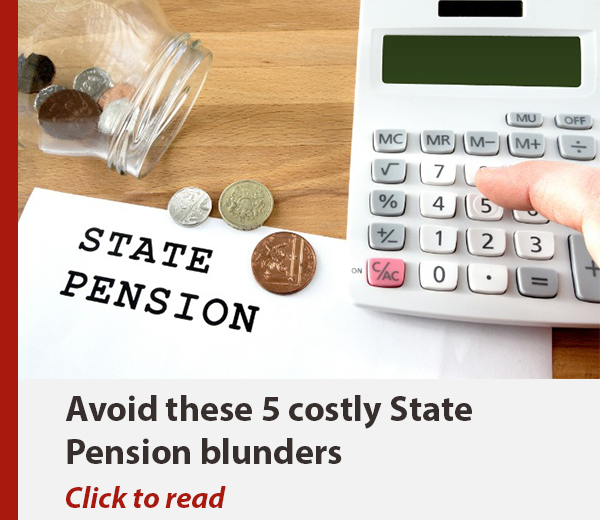How to boost your income in retirement

Pensioner incomes have fallen sharply in the last 15 years, yet fewer people are getting the help they're eligible for. If you're struggling in retirement, we look at the various ways you can boost your bank balance.
Sections
Pension incomes plummet in real terms
The financial pressure facing retired households has been laid bare by new figures from the Department of Work and Pensions.
They revealed that incomes have plummeted in real terms in recent years while, at the same time, the take-up of income-related benefits among retirees has also fallen.
According to DWP figures, the average pension income almost doubled in the 15 years between 1995 and 2010, from £206 a week to £392. However, in the 15 years since, those incomes have risen by a mere £15 to £407.
That represents a dramatic fall in real income once you factor in the impact of inflation: today's retirees would need to earn almost £595 a week just to maintain the same standard of living enjoyed in 2010, based on figures from the Bank of England's Inflation Calculator.
In other words, pension income is almost 32% lower in 2025 than in 2010.
If you're retired and struggling to make ends meet, there are several steps you can take to top up your income, which we'll run through in the rest of this guide.
Don't miss out on vital help
There are a range of credits and welfare benefits available to pensioners, so make sure you get every last penny you’re entitled to.
Pension Credit, for example, can top up low incomes to £227 for single people and £346 for couples.
If you qualify for Pension Credit, you'll also get the Winter Fuel Payment, which is worth between £100 and £300 a year.
And yet, despite offering such a valuable boost, it's estimated that as many as 800,000 eligible retirees are missing out.
To ensure you aren't one of them, and to check you aren't missing out on any additional help, have a read of this roundup of perks, discounts and benefits you can claim.
Top up your State Pension
Those claiming the new State Pension may be able to boost their weekly payments through a Government initiative.
The State Pension top-up scheme allows you to ‘buy’ a boost to your pension income.
The only problem is you need to have a lump sum in order to purchase the boost to your income.
The amount you pay depends on how much extra income you want and how old you are when you make the contribution.
Note that you can only 'buy back' a maximum of six years.
Downsize your home
If you own your home, another option to consider is downsizing.
This involves you buying a cheaper, smaller property to live in that allows you to free up some of the equity you have built up.
A smaller home will be easier to maintain and is cheaper to run. Plus, the extra cash can help with other debts or allow you to live mortgage-free.
4 things pensioners should consider before downsizing
Take in a lodger
If you’re sticking with the family home late in life, chances are you have empty bedrooms.
Under the Government’s Rent a Room scheme, you can earn up to £7,500 a year tax-free from renting out a furnished room in your home.
You might find it an invasion of your privacy, or you might welcome the company – either way, it’ll definitely provide a regular source of income.
Rent out your drive
Another alternative could be to rent out your home’s parking space.
More and more people are on the hunt for a place to park near their workplace or music or sporting venues.
Depending on where you live, you could make £100 to £200 a month from renting out your driveway via websites such as YourParkingSpace.co.uk or JustPark.com.
There are loads of other ways you can make money from your home: read more in our easy ways to make money guide.
Equity release - as a last resort
The last tip for boosting your income is a controversial one - equity release.
In the 1990s, equity release schemes had an awful reputation, with many vulnerable pensioners being ripped off by some unscrupulous outfits. Thankfully, the industry is a lot better now.
If you fancy making use of the equity you have built up in your property but can't face downsizing to take advantage of it, then equity release might be the right option for you.
There are various schemes to go for - you can get a lump sum, or a regular monthly income, or the ability to access your equity as and when you want to.
But remember, these schemes can be quite complex and will eat into the inheritance you can leave to your children, so be sure to talk to a financial adviser about the implications of signing up.
There is plenty of information on the various types of equity release on the Equity Release Council website, which is the main trade body for the sector.
Where to find help if you are struggling
If you’re struggling on a low income, don’t feel too proud or embarrassed to ask for help.
There are a number of bodies that are happy to talk through your situation and give you some guidance.
A good first step would be to get in touch with Citizens Advice.
We also have a guide explaining your options if you are retired and in debt.
Comments
Be the first to comment
Do you want to comment on this article? You need to be signed in for this feature
